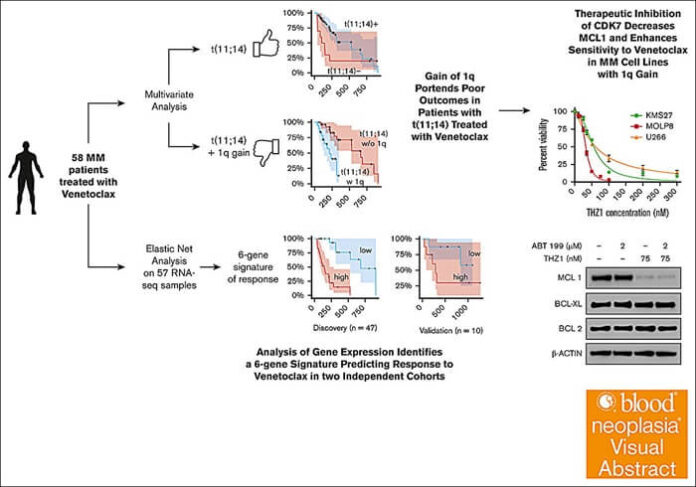Researchers at the Icahn School of Medicine at Mount Sinai have uncovered genetic factors that influence the effectiveness of venetoclax, a promising treatment for multiple myeloma, a rare form of blood cancer. Their findings, detailed in the study “Predictors of Response to Venetoclax and Therapeutic Potential of CDK7 Inhibition in Multiple Myeloma,” were published in the journal Blood Neoplasia.
This groundbreaking study is the first to investigate genetic markers in multiple myeloma patients treated with venetoclax. Although not yet FDA-approved for this indication, venetoclax—a BCL-2 inhibitor—has shown significant potential in treating multiple myeloma at Mount Sinai and other research centers. Currently, the drug is approved to treat adults with chronic lymphocytic leukemia (CLL) and small lymphocytic lymphoma (SLL).
The research identified a six-gene signature that can predict which multiple myeloma patients are more likely to respond to venetoclax. The team also discovered that combining venetoclax with inhibitors of the enzyme CDK7 could enhance the drug’s effectiveness, potentially benefiting patients who would otherwise show limited response to venetoclax alone.
“By identifying patients who are most likely to benefit, we can tailor treatments to improve outcomes,” said Dr. Alessandro Lagana, Ph.D., the study’s corresponding author and Assistant Professor of Oncological Sciences at Mount Sinai.
The study suggests that genetic testing could help identify patients who are ideal candidates for venetoclax treatment. Additionally, combining venetoclax with CDK7 inhibitors could expand its efficacy to a broader patient group.“For patients, this research paves the way for more personalized treatment plans, tailored to their genetic profiles, and improved outcomes,” Dr. Lagana explained.
As reported by medicalxpress, the research team plans to validate these findings in larger patient cohorts and conduct clinical trials to test the combined use of venetoclax and CDK7 inhibitors.This breakthrough brings hope for more effective and individualized therapies for patients battling multiple myeloma, offering a significant step forward in precision oncology.
























